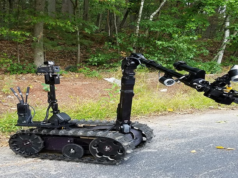
- Register
- Login
22°C
- Article
- . (0)
- Related content
According to Gartner, 2020 will be a pivotal year in AI-related employment dynamics as artificial intelligence (AI) will become a positive job motivator. AI will create 2.3 million jobs in 2020, while eliminating 1.8 million.
The number of jobs affected by AI will vary by industry: through 2019, healthcare, the public sector and education will see continuously growing job demand while manufacturing will be hit the hardest. Starting in 2020, AI-related job creation will cross into positive territory, reaching two million net-new jobs in 2025.
“Many significant innovations in the past have been associated with a transition period of temporary job loss, followed by recovery, then business transformation and AI will likely follow this route,” said Svetlana Sicular, research vice president at Gartner. AI will improve the productivity of many jobs, eliminating millions of middle- and low-level positions, but also creating millions more new positions of highly skilled, management and even the entry-level and low-skilled variety.
“Unfortunately, most calamitous warnings of job losses confuse AI with automation – that overshadows the greatest AI benefit – AI augmentation – a combination of human and artificial intelligence, where both complement each other.”
IT leaders should not only focus on the projected net increase of jobs. With each investment in AI-enabled technologies, they must take into consideration what jobs will be lost, what jobs will be created, and how it will transform how workers collaborate with others, make decisions and get work done.
“Now is the time to really impact your long-term AI direction,” said Sicular. “For the greatest value, focus on augmenting people with AI. Enrich people’s jobs, reimagine old tasks and create new industries. Transform your culture to make it rapidly adaptable to AI-related opportunities or threats.”
AI has already been applied to highly repeatable tasks where large quantities of observations and decisions can be analyzed for patterns. However, applying AI to less-routine work that is more varied due to lower repeatability will soon start yielding superior benefits. AI applied to non-routine work is more likely to assist humans than replace them as combinations of humans and machines will perform more effectively than either human experts or AI-driven machines working alone will.
By 2022, one in five workers engaged in mostly non-routine tasks will rely on AI to do a job.
“Using AI to auto-generate a weekly status report or pick the top five emails in your inbox doesn’t have the same wow factor as, say, curing a disease would, which is why these near-term, practical uses go unnoticed,” said Craig Roth, research vice president at Gartner. “Companies are just beginning to seize the opportunity to improve non-routine work through AI by applying it to general-purpose tools. Once knowledge workers incorporate AI into their work processes as a virtual secretary or intern, robo-employees will become a competitive necessity.”
Leveraging technologies such as AI and robotics, retailers will use intelligent process automation to identify, optimize and automate labor-intensive and repetitive activities that are currently performed by humans, reducing labor costs through efficiency from headquarters to distribution centers and stores. Many retailers are already expanding technology use to improve the in-store check-out process.
Through 2022, multichannel retailer efforts to replace sales associates through AI will prove unsuccessful, although cashier and operational jobs will be disrupted.
However, research suggests that many consumers still prefer to interact with a knowledgeable sales associate when visiting a store, particularly in specialized areas such as home improvement, drugstores and cosmetics, where informed associates can make a significant impact on customer satisfaction. Though they will reduce labor used for check-out and other operational activities, retailers will find it difficult to eliminate traditional sales advisers.
“Retailers will be able to make labor savings by eliminating highly repetitive and transactional jobs, but will need to reinvest some of those savings into training associates who can enhance the customer experience,” said Robert Hetu, research director at Gartner “As such most retailers will come to view AI as a way to augment customer experiences rather than just removing humans from every process. “While many industries will receive growing business value from AI, manufacturing is one that will receive a massive share of the business value opportunity. Automation will lead to cost savings, while the removal of friction in value chains will increase revenues further, for example, in the optimization of supply chains and go-to-market activities.
In 2021, AI augmentation will generate US$2.9 trillion in business value and recover 6.2 billion hours of worker productivity.
However, some industries, such as outsourcing, are seeing a fundamental change in their business models, whereby the cost reduction from AI and the resulting productivity improvement must be reinvested to allow reinvention and the perusal of new business model opportunities.
“AI can take on repetitive and mundane tasks, freeing up humans for other activities, but the symbiosis of humans with AI will be more nuanced and will require reinvestment and reinvention instead of simply automating existing practices,” said Mike Rollings, research vice president at Gartner. “Rather than have a machine replicating the steps that a human performs to reach a particular judgment, the entire decision process can be refactored to use the relative strengths and weaknesses of both machine and human to maximize value generation and redistribute decision making to increase agility.”
-
China tech giants forming alliances to tap immense AIoT opportunities
IT + CE | Dec 14, 16:56
-
EZconn optimistic about light communication demand in 2018
Before Going to Press | 11h 23min ago
-
Merck to work with GemTech for smart windows
Before Going to Press | 11h 30min ago
-
Niching expects strong 2018
Before Going to Press | 11h 56min ago
-
ASE, SPIL push back stock exchange process until October 31, 2018
Before Going to Press | 12h 2min ago
-
Huawei, Oppo, Vivo cut smartphone orders by over 10%, say sources
Before Going to Press | Dec 14, 21:52
-
China market:…








